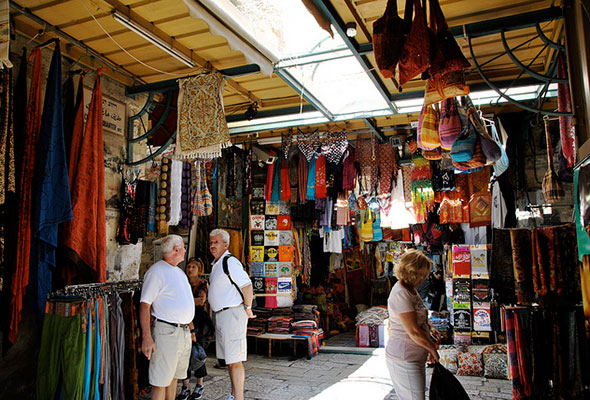March 15th, 2013
Friday was an extraordinary part of our trip to Israel. It marked a departure from the majority of the trip, which was spent meeting with business leaders and government executives. Instead, we spent the day exploring the Jewish quarter of old Jerusalem. Seeing the historic sites was incredible as many of these locations are the places you learned about in Hebrew School that have been around for thousands of years and have historical significance. One thing that stood out to me was that we were able to see the tomb and statue of King David. I was surprised to learn that King David was the only person with a statue in Jerusalem.
This trip through the old city was also an example of how this class doubled as a history course. I learned about the war of Independence and how the Jordanians at one point controlled all of East Jerusalem. This was knowledge I did not previously have.
Learning more about the history of Jews and of this country had been important to me and it was great I finally had the opportunity to learn about it. This also allows me to better understand the current context of Israel’s disputes with its neighbors. The other thing it was interesting to observe was the level of security in the city.
That night was one of the most exciting parts of the trip for me. We spent Shabbat at the Western Wall. This experience was eye opening for a number of reasons. First, it was amazing to see so many Jews praying outdoors in this single place that wasn’t a temple. Second, I had anticipated the mood at the wall to be very formal, with people focused on their individual prayer. Instead, there was a great deal of chanting and dancing. I found joining in to be a lot of fun and felt that I established a bond with the people there, even those who I didn’t speak to. This communal part of Judaism is something that I find greatly appealing. The one thing that bothered me was that even in our modern times the men’s section of the wall is significantly larger than the women’s and considered more holy.
On the whole, Friday was an extraordinary day that taught me a lot about my religion and allowed me to visit historical sites from thousands of years ago.
Dan
Class of 2016
Olin Business School
hometown: New York



